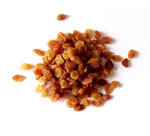Are You Prescribing Unapproved Drugs?
Posted by: admin on: July 11, 2011
- In: Pharmacology
- Comment!
Dr. Charles Lee. Medical officer in the Office of Compliance at the US Food and Drug Administration’s (FDA’s) Center for Drug Evaluation and Research.
- Many healthcare providers are unaware that unapproved drugs exist and that they can pose a significant public health risk. Many of these products have been on the market for a significant period of time, some for decades. In 1938, the federal Food, Drug, and Cosmetic Act (FDCA) required that drugs be proven safe, and in 1962, additional requirements were added that drugs be proven effective as well as safe. These changes were enacted in the wake of significant tragedies involving unapproved prescription drugs, yet many unapproved prescription drugs remain on the market illegally.
- Marketed unapproved prescription drugs are a significant public health concern because they have not been evaluated by FDA, and may not meet modern standards for safety, effectiveness, manufacturing quality, and labeling. For example, FDA recently warned 2 companies to stop marketing unapproved nitroglycerin sublingual tablets, as FDA had seen significant quality and effectiveness problems with unapproved nitroglycerin products. A second example demonstrates how product labeling of an unapproved drug impacted public health.FDA received reported cases of confusion with unapproved morphine concentrated oral solution (100 mg/5 mL) and morphine sulfate oral solution (10 mg/5 mL and 20 mg/5 mL). Analysis of the errors suggested that the numerical similarity of the concentrations (20 mg/mL vs 20 mg/5mL) and visual similarity of the packaging may have contributed to the errors. After approval of morphine oral solution (100 mg/5 mL) in January 2010 — which included changes in product labeling and packaging feature revisions intended to reduce the risk for medication errors — firms manufacturing and distributing unapproved morphine oral solution were required to stop distributing the unapproved products.
- Some healthcare providers believe that unapproved drugs are “generic drugs.” This is not true. Generic drugs are evaluated and approved by FDA, and are required, among other things, to be bioequivalent to a brand-name reference product. Additionally, the generic manufacturing, packaging, and testing sites must meet the same quality standards as those of brand-name drugs. Healthcare professionals and consumers can be assured that FDA-approved generic drug products have the same high quality, strength, purity, and stability as brand-name drugs. Proven safety, efficacy, manufacturing quality, and labeling are not ensured with unapproved drugs
- Many healthcare providers are unaware of the unapproved status of some drugs that are marketed and continue to unknowingly prescribe these drug products.
- Determining whether a drug is unapproved is not always an easy task because the labeling does not disclose that the product is not approved by FDA.
- Additionally, healthcare providers may assume that because a product bears a National Drug Code (NDC) number that it must be an approved product. This is not true. The law requires that owners of drug manufacturing facilities register their establishments and provide FDA with a current list of all drugs manufactured, prepared, propagated, compounded, or processed for commercial distribution.
- The NDC number is the number used for listing drugs with the FDA under this requirement and is required for both approved and unapproved drug products. Therefore, the presence of an NDC number on the product label does not denote approval by FDA of a marketed product; it only indicates that the drug is listed with FDA.
- In June 2006, FDA announced a new drug safety initiative to eliminate unapproved drugs in the marketplace. This initiative is a top priority for FDA. Since that time, FDA has taken a number of actions resulting in the removal of approximately 550 unapproved products from the market, and has worked with firms to bring other unapproved drugs into the approval process.
- FDA provides various resources that list approved drugs, including Drugs@FDA. To access these resources and further information regarding unapproved drugs, visit our Website at www.fda.gov/Drugs.
Read more at http://www.medscape.com/viewarticle/737615?src=mp&spon=17
Search
- drchasrani: Difficult to get such a data, authenticated at that. Try Times of India online library
- rakesh pore: hi, where can i get genuine information about "10 most common drugs sold in india?" i want it for a local project
- nilesh dutta: sir, Plz give detail about MBA Sports Management Thanks and Regards


Leave a Reply